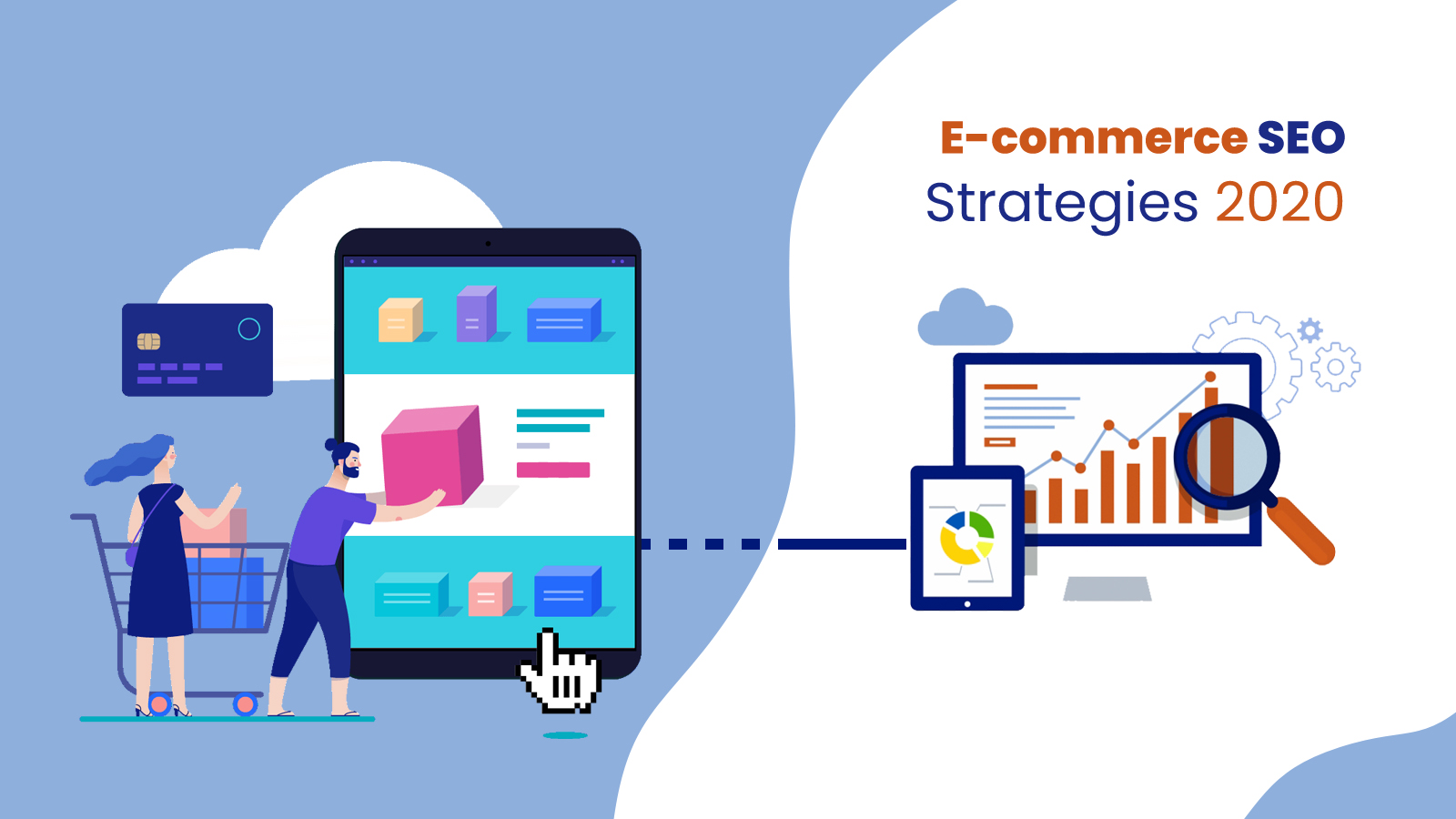In today’s web landscape, ecommerce businesses deploy the latest SEO strategies for receiving quality organic traffic. Because of that, many online stores want to improve their SEO strategies that factor in not only desktops and laptops but even mobile.
Mobility Is The Future
Search engine experts now believe that more and more people are getting mobile-savvy. Which is precisely why, it is mission-critical to deploy ecommerce SEO hacks that are responsive to mobiles and other gadgetry. After all, the future resides in mobility and in engaging smartphone users. All these SEO efforts will pay off many e-store owners in the long run for sure.
Despite their growing importance, SEO strategies for ecommerce are challenging to build and implement. Why? Because there are constant search engine algorithm updates alongside many industry jargon. That way, enterprises face a big roadblock to unlocking high organic growth on search engines.
Before discussing performance-driven search engine strategies, it is time to take a deep dive into some metrics that show why investing in ecommerce SEO makes sense today.
Ecommerce SEO Fast Facts
Some online stores still have their reservations when it comes to investing in SEO. For motivating those stores to prioritize SEO like never before, here are some hard-hitting numbers that cement the importance of having an ecommerce-centric organic growth strategy in place.
- Over 92 percent of online experiences are initiated through search engines alone
- Nearly 62 percent netizens shop online today
- Almost 16 percent of the organic traffic converts into leads
- According to a leading marketing platform, 44 percent of people begin their buying journey on Google search engine.
- As per a study conducted by a leading SaaS company, 39 percent of the traffic received by ecommerce sites is from search engines alone.
- One of the largest business news syndicates declared in its report that over 23% of ecommerce orders are attached to organic traffic.
Buried deep somewhere in most e-commerce sites, smart webmasters will find options for increasing conversions and sales like never before. How? Well, through optimizing online stores with SEO best practices depending on their needs.
Up next, world-class SEO practices that are worth implementing.
SEO Best Practices That Drive Traffic And Business For Ecommerce Stores
Keyword Research Takes Center Stage
First and foremost, the ecommerce marketing team must pinpoint search terms that come with high value. Being the foundation of any campaign, the right keywords can optimize category and product pages.
If that was not all, it is true that the keywords short-listed will influence technical SEO as well. That is basically because the site’s architecture and URLs factor in these keywords. Which is why, keyword research is important for making any SEO campaign a success.
But researching keywords for an ecommerce outlet is different from a traditional website. How? Well, because traditional websites may care about information keywords and eventually invest in them. On the other hand, ecommerce keywords are tailored around hardcore product searches.
To put it simply, informative keywords are all about information. But when it comes to researching keywords for ecommerce, stores will need to focus on those words that show extremely high buyer intent. What is more, online outlets must analyze the competition and use dedicated keyword tools such as Google Keyword Planner for preparing their list of most searchable keywords.
A Clean Site Architecture Matters
The site’s architecture includes how many pages the store has organized. As far as SEO goes, this architecture must be factored in by webmasters for improving the site’s usability. The importance of having a clean architecture becomes all the more important for ecommerce outlets.
Why? That is because the number of pages in a big online outlet is way more than any traditional website such as a blog or a local clothes outlet. Having so many pages, the ecommerce outlet’s architecture makes it faster and simpler for not just search engines but even users in finding different pages.
When it comes to designing or revamping a site’s architecture, the outlet’s marketing team will have to keep in mind two battle-tested rules:
- Rule #1: Keep things across the website scalable and simple to the core
- Rule #2: Make every page on the site just three or fewer clicks away from the homepage
Prioritize On-Page SEO
Once the site’s architecture is all set up, it will be time to completely overhaul the product and category pages from stem to stern. In any ecommerce website, these two solid webpage categories drive a lot of traffic and sales for the store.
As a matter of fact, someone searching for “Buy Shoes Online” is not that likely to purchase as someone searching for a “Blue Nike Walking Shoes Size 9” keyword. Also, the online outlet’s team will have to focus on:
Fixing Duplicate Content Issues
Sometimes two different webpages include the same content; only the URL changes, in that case. Which is why, it is unnecessary to have two URLs having identical content. Here is where the canonical link will come into play.
Through the canonical link, the team at the online store will make sure that Google and other search engines only index one of the two pages with identical content.
Finding Orphaned Or Deep Pages
The thing is that an online store’s category pages and product pages should be easily accessible to all the visitors with zero downtime. Which is why, the golden rule has always been that the homepage should be just three clicks away from any page on the site.
Following this rule, however, becomes easier said than done for large ecommerce websites. So for big ecommerce players, it is a given that the webmasters should make sure any important (deep) pages should not be more than three clicks from the homepage. No matter what happens.
Fetching Keyword Cannibalization Mistakes
Keyword cannibalization happens whenever a single website intentionally or unintentionally targets similar keywords across different pages or posts. Most SEO specialists believe that this behavior can confuse search engines.
Which is why, webmasters believe that keyword cannibalization will make it hard for a search engine to decipher which page of an ecommerce site it should rank for a specific keyword. Resultantly, neither of the pages will get ranked for the targeted keyword.
Technical SEO For Ecommerce
Focusing on technical SEO is important for every site out there, especially for the ecommerce ones. It is because ecommerce sites have many pages; and if an ecommerce website has more pages, the chances are that a technical SEO issue will arise.
To top it all off, most ecommerce pages don’t have that many backlinks on them. That means technical SEO often provides the winning edge on the first page of SERPs. For instance, if an ecommerce store is aiming for the coveted #1 rank on Google, then a technical SEO issue in its architecture will stop it from reaching that first position.
Because of that, regularly doing technical SEO site audits is a must. In general, site audits comprise:
- Checking the overall site architecture
- Examining the URL structures
- Picking the right sitemaps (XML or HTML)
- Analyzing the log files
- Optimizing the crawl budget (checking how many pages of the ecommerce store were crawled by the search engine’s bot)
- Proactively using the canonical tags for finding duplicate webpage content
- Using Robots.txt on many resource pages such as cart, checkout, finish order, and login
- Redirecting out-of-stock pages for improving the usability
Ecommerce Content Marketing Practices
Content marketing, if done properly, can rake in lots of targeted traffic and eventually business. But the real deal is finding the right content marketing strategy for the ecommerce website. When it comes to applying best-in-class content marketing strategy, these are some basic steps that an ecommerce outlet must take.
Finding Where The Target Audience Spends Time
Once an ecommerce store knows its target audience, it has to zero in on the social channels where it is likely to spend time. For instance, if an ecommerce store specializes in selling dog food, then it will make sense to jump to Reddit’s dog food community.
Creating Amazing Content Around The Interest Of Prospects
Over there, the store’s marketing team can come to know how the target audience speaks and can get actionable insights into what they are interested in when it comes to buying dog food products. The content marketing team of an online store can create amazing blog content around these keywords and phrases frequently used by customers.
Connecting With The Right Digital Marketing Growth Partner
DIY-ing the entire SEO for the e-commerce site is a promising option only if the in-house marketing team has experience-backed expertise. If that is not the case, then implementing so many SEO best practices will definitely get confusing and intimidating. Unless there is a growth partner offering scalable Digital Marketing Services.
Ecommerce stores that lack the experience in SEO must consult a trusted digital marketing partner that will help them achieve impressive organic growth without breaking a sweat. That digital marketing partner, offering store-specific SEO services, is none other than Flexsin.
Having a team of ecommerce SEO specialist, Flexsin offers a wide range of SEO plans and packages that can be tailored as per the client’s needs. From carrying out SEO assessments to finalizing SEO strategy and implementing it for the ecommerce store, Flexsin’s team of search engine specialists transforms ecommerce businesses into well-known online brands.
Talking of search engines, Flexsin has deep expertise in putting a store on the top SERPs of leading search engines including Google, Bing, and Yahoo. In case any ecommerce website wants to unlock true organic growth for its online brand, it should connect with Flexsin and take that one step toward leveraging SEO tailored for ecommerce.


 rohit
rohit


